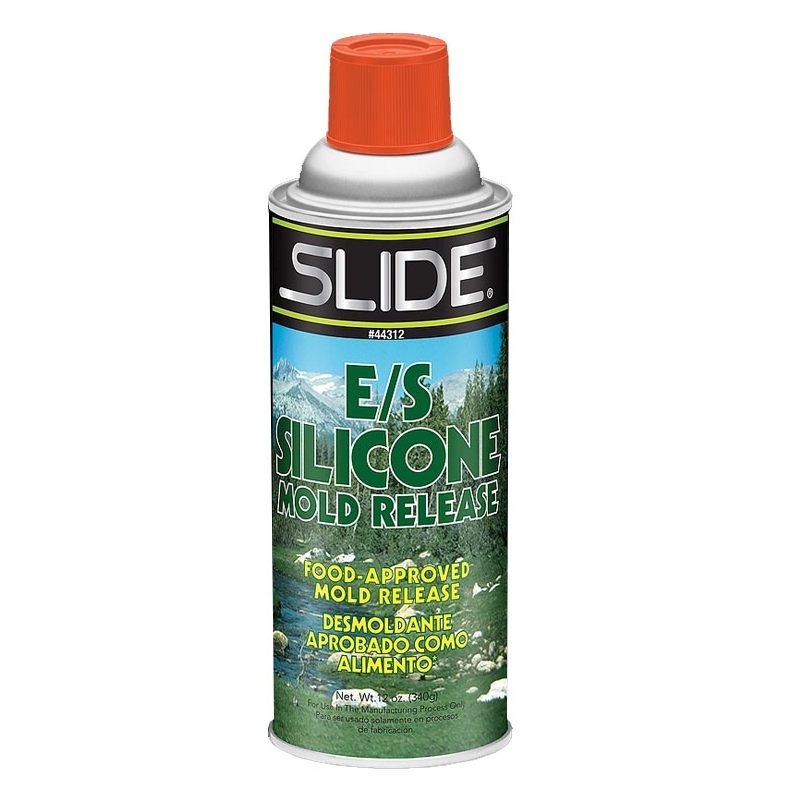

Payment & Delivery



 Security policy
Security policy
(edit with the Customer Reassurance module)
 Delivery policy
Delivery policy
(edit with the Customer Reassurance module)
 Return policy
Return policy
(edit with the Customer Reassurance module)
Slide 44312 Silicone Mold Release is effective in many applications, especially on molds 212°f and above, it is an excellent “wet” silicone lubricant. Formulated for environmentally conscious companies, striving for greener solutions. Maximum operating temp: 600°F/315°C
Lubricant approved for food related equipment!
Slide 44312 MSDS Available from the attachments tab along with instructional videos.
NOTE: Slide Products are developed for plastics processors and fabricators, including mold and tool builders or MRO applications in general industry. They are not formulated for home use. These products will not be shipped to a residential address and are not intended as retail products.
How to effectively use mold releases to maximize production
How to safely protect molds with Rust Preventives
How to use the simple plug-and-play Freedom automatic spray unit
Purging procedures for injection molders
How to properly lubricate ejector pins
How to properly clean a tool steel mold
In short, the main differences between FDA approved, food-grade, and NSF-certified are as follows: FDA approved: Primarily applies to drugs, medical devices, and certain food additives; indicates that the FDA has approved the product for a specific intended use. Food-grade: Refers to materials and substances safe for direct contact with food; ensures they meet regulatory standards for food safety and prevent contamination. NSF-certified: A certification provided by NSF International, typically related to equipment and materials used in the food industry; indicates that the product meets specific safety, quality, and performance standards set by NSF.
In short, the main differences between FDA approved, food-grade, and NSF-certified are as follows: FDA approved: Primarily applies to drugs, medical devices, and certain food additives; indicates that the FDA has approved the product for a specific intended use. Food-grade: Refers to materials and substances safe for direct contact with food; ensures they meet regulatory standards for food safety and prevent contamination. NSF-certified: A certification provided by NSF International, typically related to equipment and materials used in the food industry; indicates that the product meets specific safety, quality, and performance standards set by NSF.
The main differences between FDA approved, food-grade, and NSF-certified are as follows: FDA approved: Primarily applies to drugs, medical devices, and certain food additives; indicates that the FDA has approved the product for a specific intended use. Food-grade: Refers to materials and substances safe for direct contact with food; ensures they meet regulatory standards for food safety and prevent contamination. NSF-certified: A certification provided by NSF International, typically related to equipment and materials used in the food industry; indicates that the product meets specific safety, quality, and performance standards set by NSF.
Slide uses the following HS Codes.
